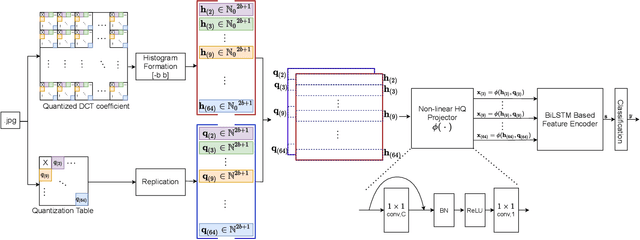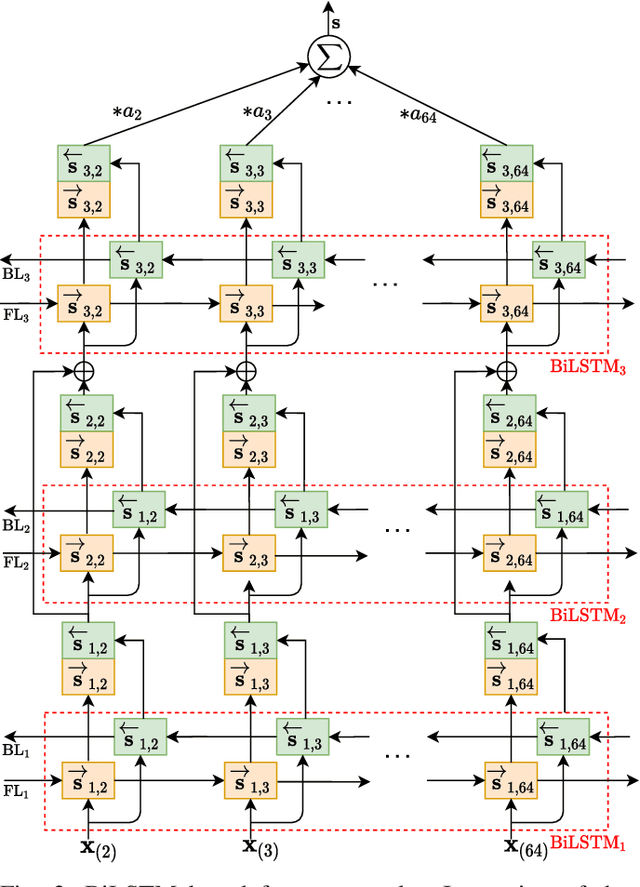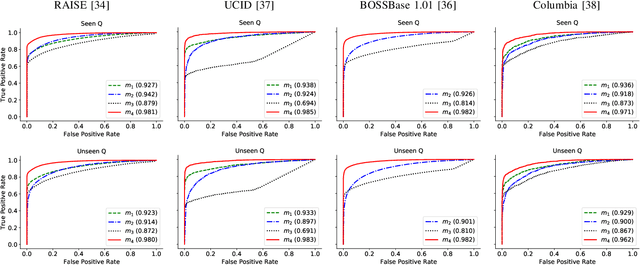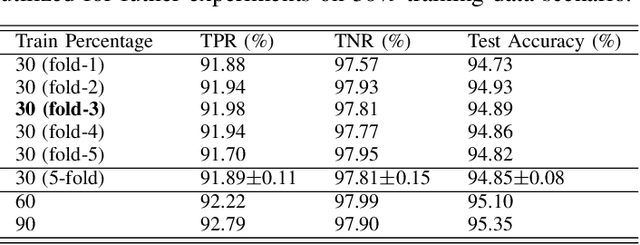Q-matrix Unaware Double JPEG Detection using DCT-Domain Deep BiLSTM Network
Paper and Code
Apr 10, 2021



The double JPEG compression detection has received much attention in recent years due to its applicability as a forensic tool for the most widely used JPEG file format. Existing state-of-the-art CNN-based methods either use histograms of all the frequencies or rely on heuristics to select histograms of specific low frequencies to classify single and double compressed images. However, even amidst lower frequencies of double compressed images/patches, histograms of all the frequencies do not have distinguishable features to separate them from single compressed images. This paper directly extracts the quantized DCT coefficients from the JPEG images without decompressing them in the pixel domain, obtains all AC frequencies' histograms, uses a module based on $1\times 1$ depth-wise convolutions to learn the inherent relation between each histogram and corresponding q-factor, and utilizes a tailor-made BiLSTM network for selectively encoding these feature vector sequences. The proposed system outperforms several baseline methods on a relatively large and diverse publicly available dataset of single and double compressed patches. Another essential aspect of any single vs. double JPEG compression detection system is handling the scenario where test patches are compressed with entirely different quantization matrices (Q-matrices) than those used while training; different camera manufacturers and image processing software generally utilize their customized quantization matrices. A set of extensive experiments shows that the proposed system trained on a single dataset generalizes well on other datasets compressed with completely unseen quantization matrices and outperforms the state-of-the-art methods in both seen and unseen quantization matrices scenarios.
 Add to Chrome
Add to Chrome Add to Firefox
Add to Firefox Add to Edge
Add to Edge